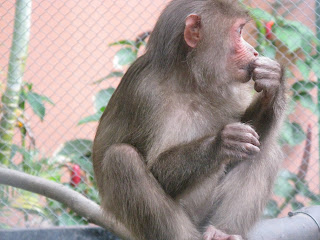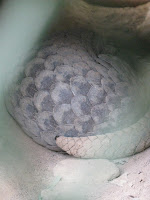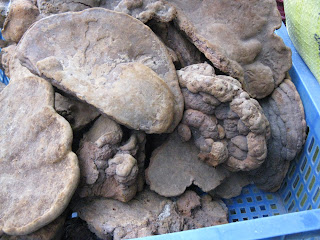Some time ago, Gavin and I needed to escape the city for a day, so we headed up to the Cu Chi Wildlife Rescue Station. The ride by motorbike from the city center was enough to make your backside numb, but it was well worth the journey. Gavin and I arrived, excited to see some animals and meet Lam, the director of the center. Lam was very knowledgeable and informative. He led us through the whole center, explaining why the animals were there and what they were. Most of the animals were rescued from the thriving black market. They were found, often injured or on the brink of death, and brought to the station for rehabilitation. Most of the animals will be reintroduced into the wild, but some are permanent residents due to near fatal injuries (e.g. a three-legged porcupine). Without further adieu, these are some of the many animals we met during our visit.
Lam and I
A monitor lizard being tickled.
A sleeping baby leopard
A lone macaque. Handsome and melancholic, I nearly adopted him!
White-faced gibbons. The most commonly encountered inmate at the center, these spindly acrobats numbered well over sixty. We also have a video of them on the move HERE.
Box turtles - victims of habitat destruction and the bush meat trade.
A langur eating grapes.
Female gibbons (all gibbons are black in their adolescence, but the females start turning lighter with the advent of puberty).
Adult river otters queuing up for lunch time. Check out a video of these maniacs HERE.
Pangolin. Another victim of the bush meat trade. One of the most expensive meats on the black market in Vietnam, going for about $100 a kilo. We recently came upon a news article where police confiscated thirty of them from one clandestine truckload headed to the market.

Juvenile River Otters playing
Un-photographed animals include: porcupines, various reptiles and amphibians, nocturnal lorises, and several soporific sun bears that napped throughout our visit.
If you would like more information or would like to donate to the organization you should check out their website HERE. They are really doing awesome work, but are understaffed and clearly have a lot of bellies to fill and animals to rehabilitate.

























































